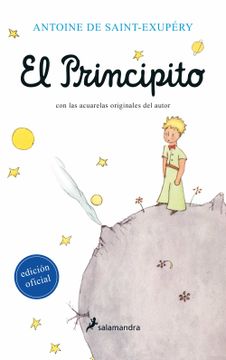EL PRINCIPITO
ANTOINE DE SAINT EXUPÉRY
Antoine Marie Jean-Baptiste Roger Conde de Saint-Exupéry1 (Lyon, 29 de junio de 1900-Isla de Riou, 31 de julio de 1944) fue un escritor y aviador francés, autor de la famosa obra El principito.
Si le hablan a un mayor de un nuevo amigo. Nunca dirán: “¿cuál es el timbre de su voz? ¿Cuáles son los juegos que más le gustan? ¿Hace colección de mariposas?” Os preguntarán: “¿Qué edad tiene? ¿Cuántos hermanos tiene? ¿Cuánto pesa? ¿Cuánto gana su padre?” Sólo entonces creerán conocerlo.
Es mucho más difícil juzgarse a sí mismo que juzgar a los demás… Si consigues juzgarte bien, es que eres un verdadero sabio.
Solo se ve bien con el corazón. Lo esencial es invisible a los ojos.

Comentarios
Publicar un comentario